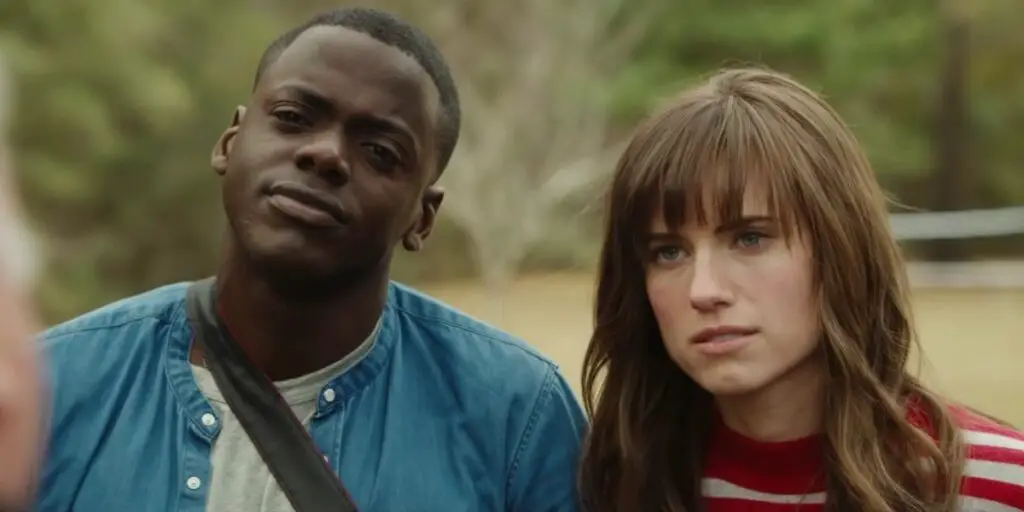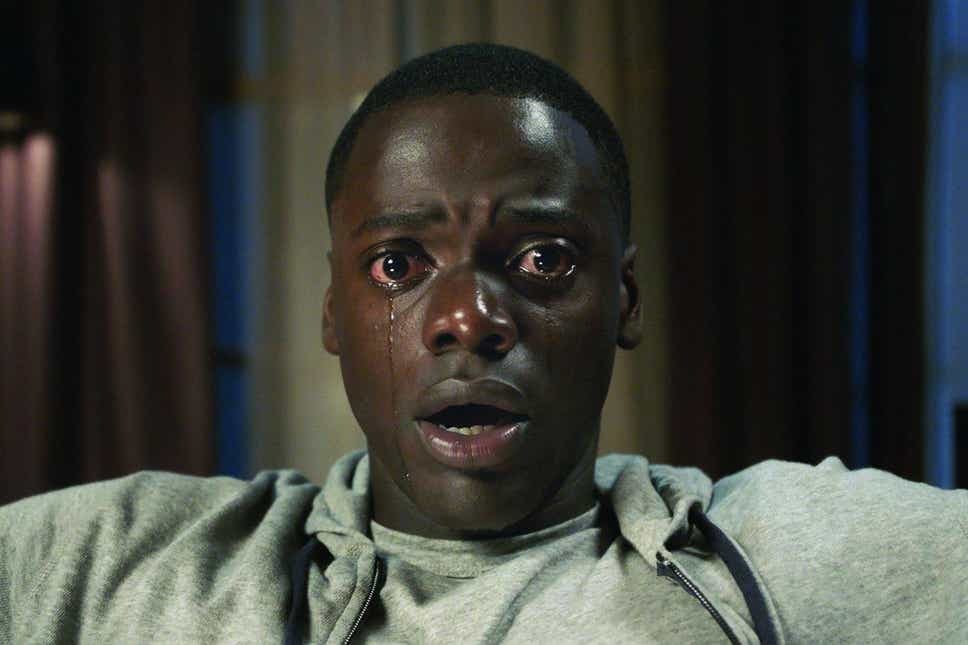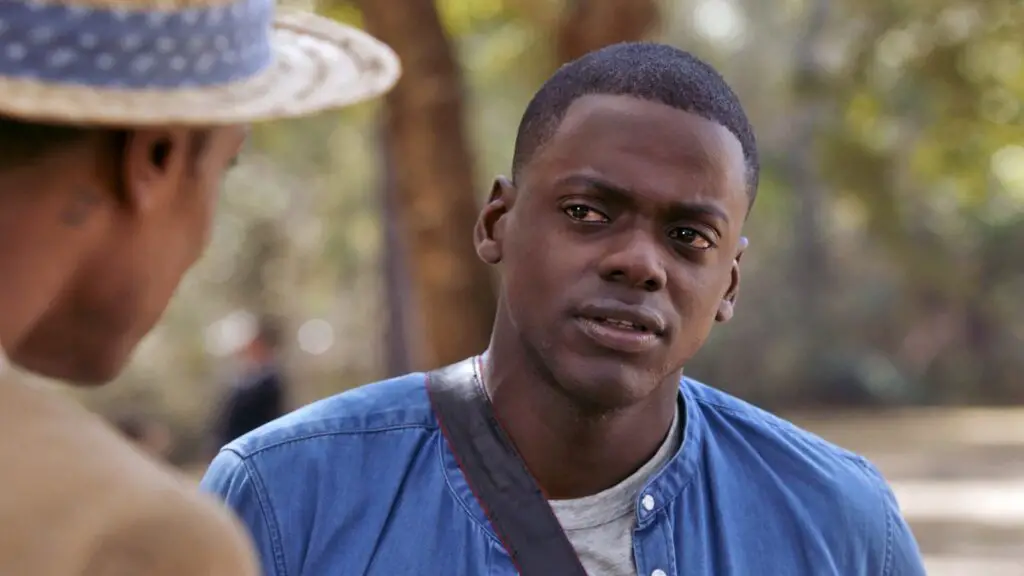Jordan Peele’s inaugural masterpiece, “Get Out“, is undeniably a haunting reflection on modern racism. The story shadows Chris, a Black man played by Daniel Kaluuya, as he unveils terrifying secrets within his girlfriend’s family, the Armitages, who have a twisted fascination with inhabiting Black bodies to attain a malevolent type of eternal life.
The ending most viewers are familiar with presents a sigh of relief: Chris escapes the monstrous ploys of the Armitages. As he prepares to take revenge on Rose Armitage, police sirens momentarily panic audiences, only to reveal that the supposed ‘cop’ is Chris’s buddy, Rod. But would you believe that wasn’t Peele’s first conclusion?
The Original Ending’s Profound Gloominess

Peele’s first closure was not as merciful. Instead of Rod coming to Chris’s aid, it was actual policemen who apprehend Chris, assuming him to be the murderer of the entire Armitage clan. Trapped behind bars, Chris becomes another tragic statistic of racial profiling, with even his close friend Rod unable to help him find justice. The stark end would’ve solidified the film’s running commentary on racial prejudices, leaving the audience with a heavy realization that Chris, like many Black individuals, couldn’t escape the claws of racial injustice.
Rose, despite her malevolence, also showcases how white privilege can weaponize innocence. Early on, she brazenly challenges a police officer, hinting at her knowledge of her privileged position. By the film’s culmination, even in death, she manages to exert a final blow to Chris – an innocent Black man is wrongfully imprisoned, thanks to her evil machinations.
A Glimpse at Other Dark Endings
On Talking With Chris Hardwick, Peele hinted at other potential finales. One such chilling twist featured Rod investigating the Armitage home and spotting Chris. However, instead of a reunion, Chris eerily parrots a line from one of the earlier kidnapped victims, signaling his lost identity and complete assimilation into the Armitage’s nefarious plan.
Peele’s Rationale Behind the Shift

So why, in a film that unabashedly addresses racial disparities, did Peele decide on a somewhat uplifting finish? Given the sociopolitical climate during its release, with racial tensions at a fever pitch, Peele believed that audiences craved a momentary breather from the relentless dread. Sean McKrittick, the film’s producer, concurred that the initial ending was too gut-wrenching, likening it to “punching everyone in the stomach.”
Peele’s final choice for the ending brilliantly marries both the stinging realism of racial prejudices and the joy of Black camaraderie. As the police sirens blare and Chris grapples with Rose, the audience is left in painful suspense, fully understanding the grim reality many Black individuals face. But the ultimate appearance of Rod grants the audience a fleeting yet satisfying victory.
In Closing
“Get Out“, with its razor-sharp societal critique and cinematic prowess, remains an era-defining work. Regardless of one’s preference for the film’s conclusion, the underlying messages on racial inequality and prejudice resonate deeply.


